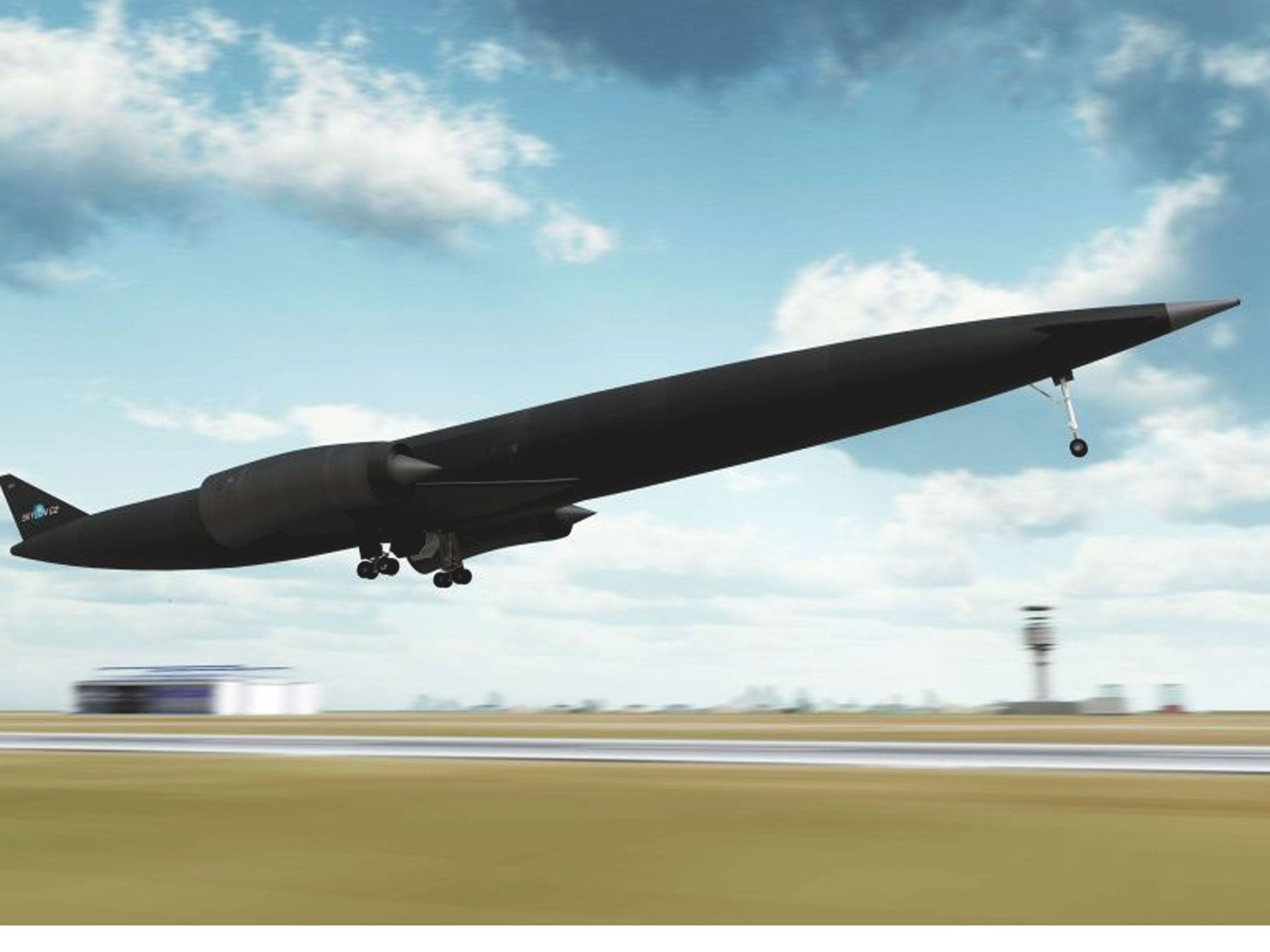Government to spend £60m on revolutionary Sabre rocket engine that will be used on spaceplane Skylon
Skylon will be capable of reaching Earth's stratosphere in just 15 minutes

The Government will spend £60 million on a revolutionary new rocket engine that can send astronauts into orbit and accelerate aircraft to five times the speed of sound, a minister confirmed.
David Willetts, Minister for Universities and Science, said the investment in Sabre, a British-designed engine, would provide support at a “crucial stage” to allow a full-scale prototype to be built.
Reaction Engines, the company behind the Sabre project, will seek to use the technology on a unique “spaceplane” called Skylon, which will be capable of taking people to Earth's stratosphere in just 15 minutes.
“We're investing £60 million in this and we expect them to go out and find private support as well,” Mr Willetts told Radio Five Live.
“But we're backing this because it's technology that has been tested in the lab, it's been assessed by outside experts as right in principle, but now it needs to be built on a full-scale prototype before it can get commercial.
“We think it's right to support it through that crucial stage. That's where too many great British ideas in the past have failed.”
Mr Willetts will speak at the UK Space Conference in Glasgow, which runs until Wednesday, where he is expected to release more details about the investment.
Reaction Engines are now hoping to run flights carrying 15 tonnes of cargo to space stations by 2022.
Spaceplanes can operate as aircrafts within Earth's atmosphere, as well as functioning as a space craft when in space. Only rocket powered aircrafts have so far managed to reach space.
Skylon could be potentially viewed as a competitor to Sir Richard Branson's Virgin Galactic business, in which people can experience six minutes of weightlessness during a sub-orbital spaceflights.
Test flights for the spaceplane are initially being scheduled for 2019. The unpiloted vehicle will be able to reach speeds of more than 19,000 miles an hour, cutting the journey time from London to Australia to approximately four hours.
Subscribe to Independent Premium to bookmark this article
Want to bookmark your favourite articles and stories to read or reference later? Start your Independent Premium subscription today.

Join our commenting forum
Join thought-provoking conversations, follow other Independent readers and see their replies